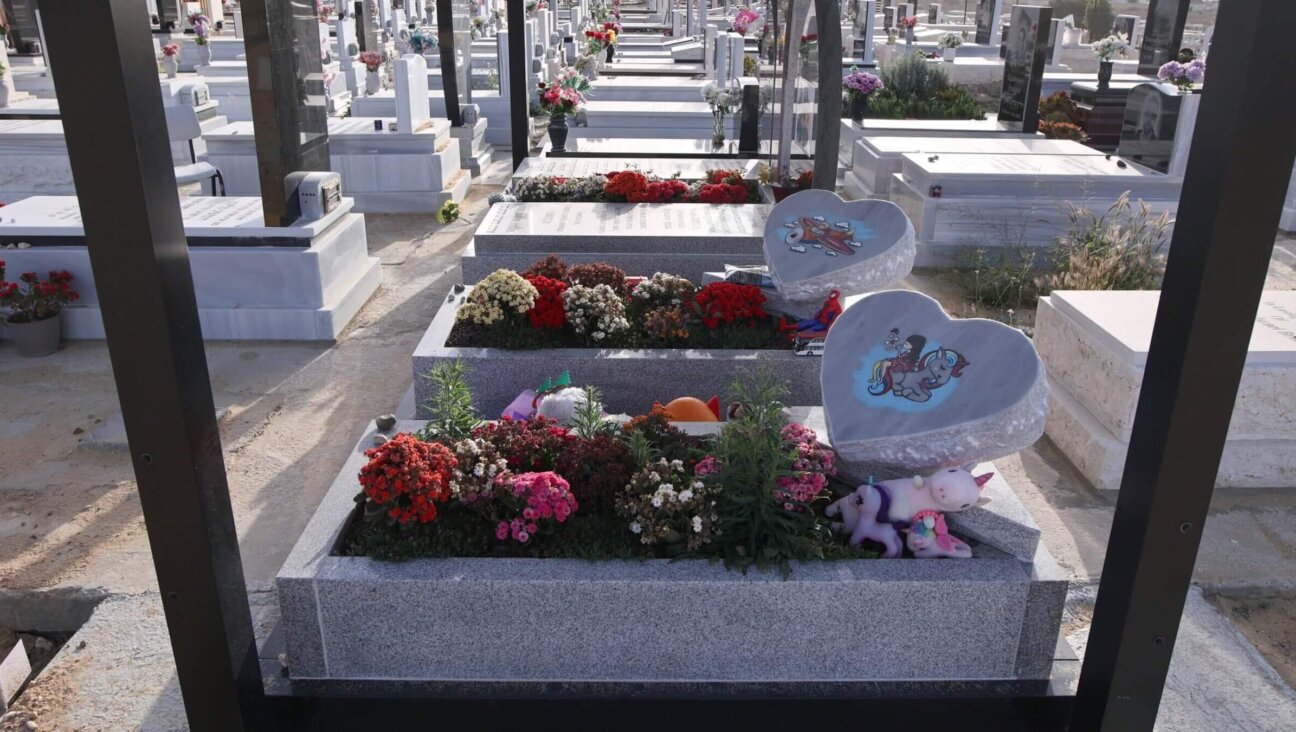They’re Palestinians facing eviction in east Jerusalem. They may have helped save my family.

Palestinian and Israeli activists demonstrate against the expulsion of Palestinian families from their homes in the neighborhood of Sheikh Jarrah in east Jerusalem on April 16, 2021. By Emmanuel Dunand/Getty Images
I heard the story countless times. My great-grandfather Raphael, an Arab Jew who was born in Jerusalem, died when my grandfather was 13. Raphael had two business partners. One partner, who was a European Jew, took advantage of the bereft widow, and stole our family’s livelihood. The other partner, an Arab and fellow Jerusalemite, saved my family from ruin, helped however he could, and treated my grandfather like a son.
The kind partner came from an illustrious Muslim family in Jerusalem, the Dajanis, also known by the honorific Daoudi, given to them by Ottoman Sultan Suleiman the Magnificent in 1529.
Now, families with those two names — Dajani and Daoudi — are facing eviction from their homes in Sheikh Jarrah, a neighborhood in east Jerusalem.
I don’t know if either family is descended from my great-grandfather’s partner and my family’s benefactor. But the contrast between their imminent fate and the kindness shown to my great-grandfather is devastating. As a Jew in whose name an increasingly extremist Israeli government purports to speak, it’s my duty — and the duty of us all — to voice our objections to this step. It’s an unconscionable violation of the common humanity that binds us all.
The Dajani and Daoudi families have until August to leave. But court rulings have mandated that seven other families, including the Al-Kurd family, which has been fighting eviction since settlers moved at gunpoint into part of their home in 2009, must vacate their homes by May 2.
On that date, 130 Palestinians belonging to those seven families will be evicted from their homes. Those homes will be handed over to settler organizations who claim ownership rights. No matter what coalition ends up taking control of the Israeli government, these evictions, and those scheduled for August, now seem almost inevitable.
Eviction is always a tragedy. In the United States, the 2008 financial crisis and the ongoing COVID-19-related unemployment crisis led to waves of eviction that may still get worse. Things may look similar in Jerusalem. But the problem is different.
Israeli eviction practices rely on a slew of obsolete laws dating back to the British Mandate. Others are more recent. The Absentees’ Property Law of 1950 gave the property of Palestinians who were evicted or fled in 1948 to the State of Israel; the Legal and Administrative Matters Law of 1970 ruled that only Israeli Jews could reclaim land or property in Palestinian areas; and the Jerusalem Master Plan draws on tools of urban planning to evict non-Jews from East Jerusalem.
My family’s history is, to me, a reminder of how different life in Israel could be.
I grew up listening to stories from my grandfather about his life in pre-1948 Jerusalem. He had many friendships and associations with Muslim and Christian Jerusalemites. As a young man, he surveyed houses in Sheikh Jarrah for the Palestinian architect Spyro Houris.
My great-uncle, Eli Eliashar, titled one of his books “Living with the Palestinians” and spoke out against the occupation of the West Bank, Gaza and Jerusalem after the 1967 War. He called for negotiations with the PLO and establishment of a Palestinian state to avert disaster for all.
All this history was part of my Jewish education.
Evictions that aim to rid Jerusalem of its Palestinian non-Jewish residents must end. American Jews must speak out to leaders within the Jewish community as well as to the U.S. government. The Biden Administration can and should call on the municipality of Jerusalem and the government of Israel to put this shameful policy to a stop.
We must and can live together. This much my family history has taught me. The current path of eviction at the point of a gun leads to a dismal future for all, not just for the families of Sheikh Jarrah.
Julia Elyachar is a professor of anthropology at Princeton University.























